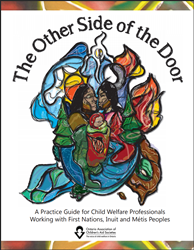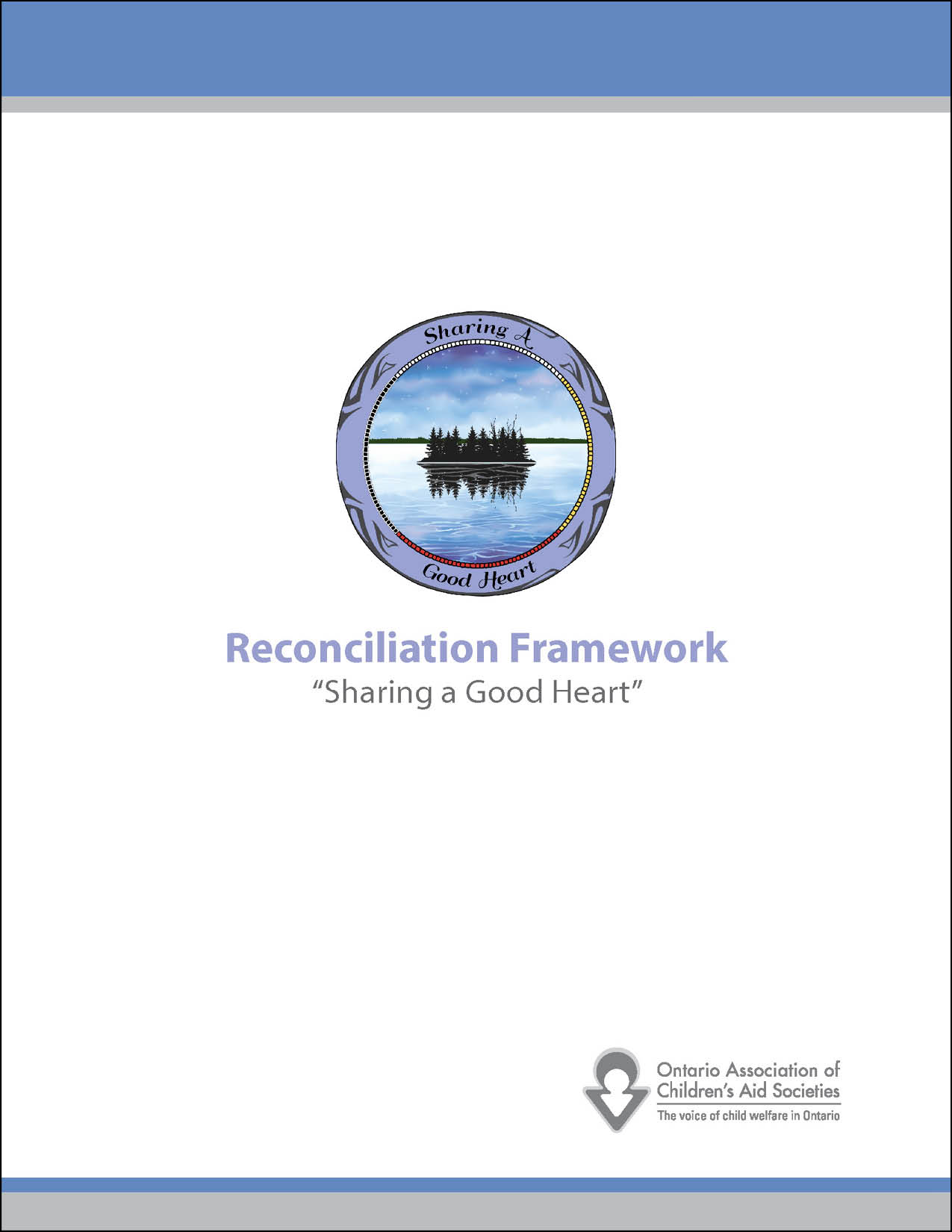OACAS supports and collaborates with Indigenous, First Nation, Métis and Inuit (FNMI) communities in bettering the health, well-being and life chance of FNMI children in Ontario. OACAS does so by offering programming to enhance the knowledge and understanding of child welfare staff of Indigenous culture and history, as well as to Indigenous youth in care. In addition we advocate and support restoration of jurisdiction of child welfare service to FN communities.
As an organization, OACAS continues to advocate to ensure agencies are able to support the needs of Indigenous children and families they are serving. There is a strong emphasis on enhancing the knowledge and understanding of Ontario’s FNMI population for child welfare staff. OACAS is also working to support and facilitate reconciliation between Children’s Aid Societies and the First Nation communities they serve.
 OACAS has released The Other Side of the Door: A Practice Guide for Child Welfare Professionals in Working with First Nation, Inuit and Métis Peoples. The practice guide was developed by Kenn Richard, Executive Director, Native Child and Family Services of Toronto, last spring to strengthen understanding of the history of colonization within child welfare, the culture and strengths of FNMI families and communities, and prepare all child welfare professionals to fulfill the unique obligations under the Child, Youth and Family Services Act with respect to providing services to FNMI families. The intent is for all new staff, volunteers, and board members to read the guide within their first month of employment/volunteering. The Indigenous practice guide was finalized this year as a result of extensive feedback from a range of Indigenous and non-Indigenous Children’s Aid Societies.
OACAS has released The Other Side of the Door: A Practice Guide for Child Welfare Professionals in Working with First Nation, Inuit and Métis Peoples. The practice guide was developed by Kenn Richard, Executive Director, Native Child and Family Services of Toronto, last spring to strengthen understanding of the history of colonization within child welfare, the culture and strengths of FNMI families and communities, and prepare all child welfare professionals to fulfill the unique obligations under the Child, Youth and Family Services Act with respect to providing services to FNMI families. The intent is for all new staff, volunteers, and board members to read the guide within their first month of employment/volunteering. The Indigenous practice guide was finalized this year as a result of extensive feedback from a range of Indigenous and non-Indigenous Children’s Aid Societies.
Sharing a Good Heart
In 2013, the Indigenous Services Advisory Committee released a “Reconciliation Framework” for consideration by OACAS and its member Children’s Aid Societies (CASs). 
This publication is the result of a consultative process with OACAS staff and members of its Indigenous Advisory Committee. In addition, a number of focus groups about reconciliation were conducted in all six zones. From this feedback, a series of options was developed, some of which incorporated current CAS practice, while others were suggestions from group participants. These options are grouped into the following five categories:
- Welcoming Indigenous Culture
- Creating Relationships
- Supporting Restoration
- Reconciliation
- Public Education
This framework provides some questions for consideration to support CASs in dialoguing about where they are in terms of their relationship with the FNMI communities they work with. This is not an easy journey: Reconciliation will require empathy, courage, and creativity on everyone’s part.
Karen Hill speaks on why it's important for Canadians to listen to survivors of Canada's Murdered and Missing Indigenous Women and Girls. Click here for the full interview.
Truth and Reconciliation Commission's Final Report and Recommendations
On June 2, 2015, Justice Murray Sinclair released the Truth and Reconciliation Commission's Summary Report. The report, which includes 94 recommendations, comes ahead of a final report that will be released later this year. The aim of the Commission and its report is to address the continuing legacy of the residential school system and "to guide and inspire a process of truth and healing leading towards reconciliation..."
The Truth and Reconciliation Commission's findings and recommendations are especially relevant to child welfare systems in Canada. The Commission directly relates the overrepresentation of Indigenous youth in child welfare today to the "intractable legacies of residential schools." Several pages of the summary report look at current provincial child welfare systems in some detail. In addition, the report's first five "calls to action" are directed at the child welfare system. Read OACAS’ Statement on the Commission’s Summary Report.